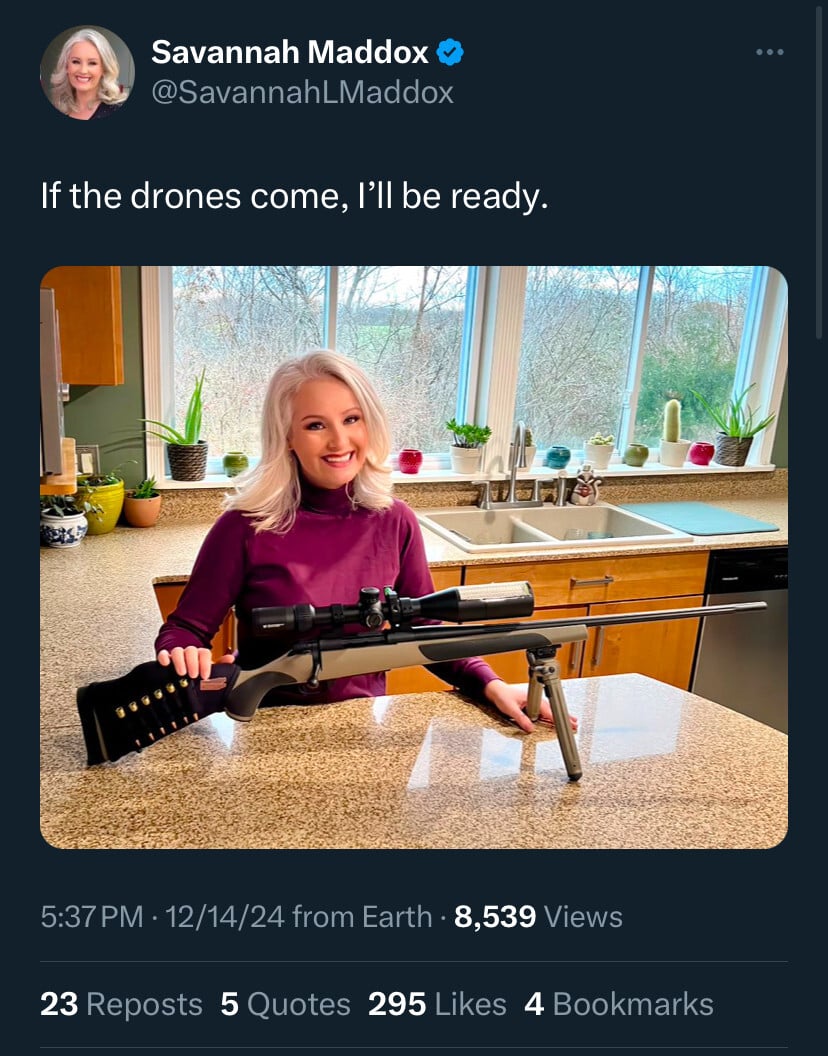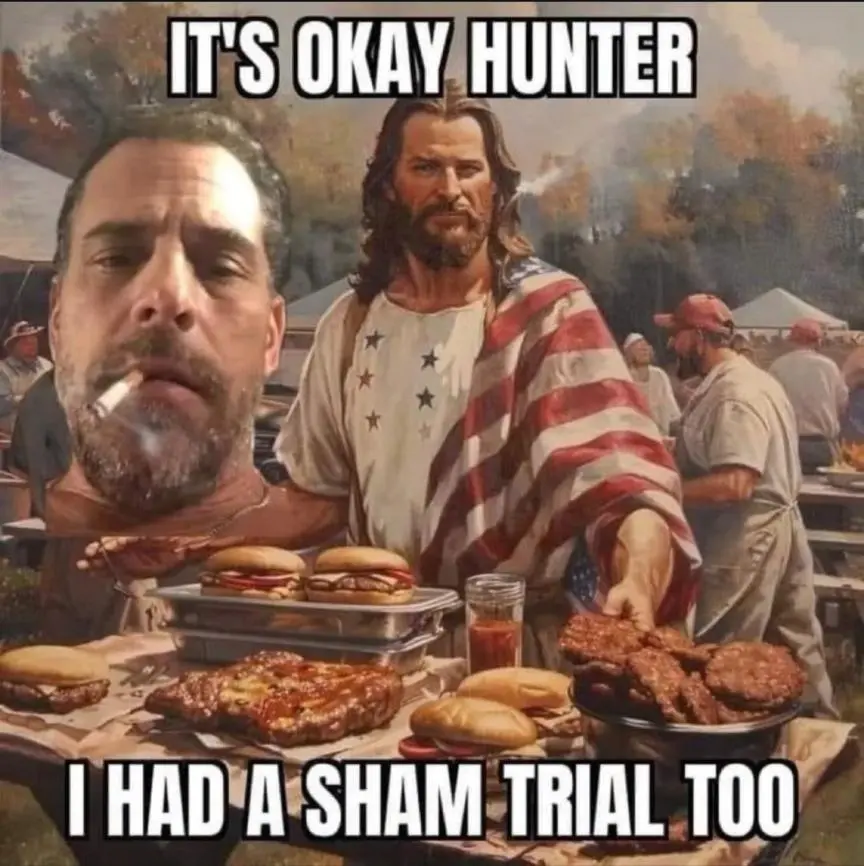It's an early YA novel and propaganda piece. Very good at what it set out to accomplish. Obviously, not good for a material understanding of the world.
UnderpantsWeevil
Florida is well on its way
Well, I'm glad Mamdani won in NYC and zionist liberals can finally put to rest the need to vote straight ticket Democrat.
Voters chose the option furthest right
Politicians picked their voters in order to guarantee this outcome. Gerrymandering, mass disenfranchisement along social and ethnic lines, vote caging, intimidation, misinformation, straight up sabotage of voting venues... It happens all the time in liberal democracies, particularly in poorer, more homogeneous, and more rural neighborhoods.
As soon as the politicians fuck up on the math and a socialist breaks through (as with AOC beating Crowley back in '18 or Mamdani trouncing Cuomo last week), you get to see the "moderates" and their conservative cats' paws rush in to subvert the popular will.
This happens every time the left most option isn’t chosen.
The joke is how quickly a government will move to the right when the left-most option is chosen.
It’s a hundred pages of diatribes, some misogyny, a story beat, another fifty pages raving about bureaucracy, a story beat, and 100 pages about brainwashing and how socialism fucking sucks.
The joke of 1984 is that Orwell neatly described the modern capitalist British State virtually to a T. Hell, it wasn't all that far off from the contemporary British State, given the conditions of paranoia and economic decline the island suffered during the postwar aftermath.
In the era it was written, a lot of the diatribes about the nefarious villains of socialist politics felt like a guy throwing on a big spooky ghost custom with a light under the chin. But in the modern moment... fuck it if cops busting down my door because my elementary-school son was tricked into accusing me of ThoughtCrime during a mandatory Two-Minute Hate doesn't feel like a thing that could really happen.
Then the most half-baked “how do I tie this bad essay together?” ending.
The execution was a forced ending. But the psychology at the end - this desperate liberalist clinging to an individualized, compartmentalized psychic resistance - absolutely strikes a cord. I know plenty of people (hell, I regularly indict myself) over the reflexive meekness draped atop rebellious fantasy. This growling whipped-dog sentiment, where liberals will say everything in a loud whisper, but duck their heads in terror at the first whiff of authority or consequence... as we move further and further towards fascism. I see it everywhere.
Orwell very neatly diagnoses the failure of the liberal opposition in the personage of Winston Smith and his peers. And it is even further pronounced in the meta-textual narrative, as Orwell himself is an embodiment of Winston. A man who has rewritten history at the behest of his imperialist paymasters (after a career as a fucking Burmese cop and nark, ffs) goes to his grave subsuming the revulsion of his own country with a fear and antipathy towards a distant foreign land.
As a coming-of-age book, particularly for American teenagers, "Catcher in the Rye" resonates for a reason. It does an excellent job of capturing the moment from a sympathetic point of view. And then you read it ten years later, thinking to yourself "Holy shit was I really like this?" only to realize you absolutely were.
Might be worth recalling that Ron DeSantis got his start as a DOJ staffer overseeing torture conducted at the Guantanamo Bay prison.
American businesses will spend millions of dollars to hold an event almost no one outside their little circle of friends will even hear about in order to tell the public to do a thing they have no real choice in.
$37T and counting. But nobody seems to want to ask who is on the receiving end of that pile of notes.
- $15.16 trillion (42 percent) is held by US private investors and entities, mostly in the form of savings bonds, mutual funds and pension funds.
- $7.36 trillion (20 percent) is held by intra-governmental US agencies and trusts.
- $4.63 trillion (13 percent) is held by the Federal Reserve.
Among individuals, Warren Buffett, through his company Berkshire Hathaway, is the single largest non-government holder of US Treasury bills, valued at $314bn.
Just something to think about when we hear how we've got "too much" debt and people start worrying about who will get paid back first.
Learn about early American history, specifically the Revolutionary War and the period shortly before it.
The Regulator Movement in North Carolina, also known as the Regulator Insurrection, War of Regulation, and War of the Regulation, was an uprising in Provincial North Carolina from 1766 to 1771 in which citizens took up arms against colonial officials who they viewed as corrupt. Historians such as John Spencer Bassett argue that the Regulators did not wish to change the form or principle of their government, but simply wanted to make the colony's political process more equal. They wanted better economic conditions for everyone, instead of a system that heavily benefited the colonial officials and their network of plantation owners mainly near the coast
During the American Revolution, many prominent Regulators became Loyalists, like James Hunter who fought at the Battle of Moore's Creek Bridge. ... The Regulators notably were never against the monarchy - their issue was with local corruption and elites abusing them.
Dunmore's Proclamation was formally proclaimed on November 15. Its publication prompted between 800 and 2,000 slaves (from both Patriot and Loyalist owners) to run away and enlist with Dunmore. It also raised a furor among Virginia's slave-owning elites (including those who had been sympathetic to Britain), to whom the possibility of a slave rebellion was a major fear.
Later British commanders over the course of the American Revolutionary War followed Dunmore's model in enticing slaves to defect—the 1779 Philipsburg Proclamation, which applied across all the colonies, was more successful. By the end of the war, at least 20,000 slaves had escaped from plantations into British service
Shays's Rebellion was an armed uprising in Western Massachusetts and Worcester in response to a debt crisis among the citizenry and in opposition to the state government's increased efforts to collect taxes on both individuals and their trades.
When the Revolutionary War ended in 1783, Massachusetts merchants' European business partners refused to extend lines of credit to them and insisted that they pay for goods with hard currency, despite the country-wide shortage of such currency. Merchants began to demand the same from their local business partners, including those operating in the market towns in the state's interior. Many of these merchants passed on this demand to their customers, although Governor John Hancock did not impose hard currency demands on poorer borrowers and refused to actively prosecute the collection of delinquent taxes. The rural farming population was generally unable to meet the demands of merchants and the civil authorities, and some began to lose their land and other possessions when they were unable to fulfill their debt and tax obligations. This led to strong resentments against tax collectors and the courts, where creditors obtained judgments against debtors, and where tax collectors obtained judgments authorizing property seizures.
Just remember that the American Revolution was a bourgeois revolution that failed to address many of the underlying economic conditions plaguing the colonies from the outset. Yes, the American merchant class beat back the British Monarchists. But no, that wasn't a happily-ever-after for the proletariat of the nascent nation.


If you get into those coffee table books about the making of the first three movies, you find lots of world building.
All the bounty hunters on the deck of Vader's Super Star Destroyer in Empire Strikes Back have canonical backstories, for instance. The cosmology of the galaxy - with Corusant at the center of the Empire and Tantoine way out in "Hutt Space" - was laid out by Lucas far in advance. "The Clone Wars" wasn't just an off-handed reference, it was a thing Lucas had defined as the WW2 precursor to New Hope's Vietnam. Hell, the fact that the first movie released was "Episode IV" should say it all.
One reason you got so many derivative works following Return of the Jedi is that Lucas dumped his director's notes to the public as merch when production initially stalled on the Prequels.